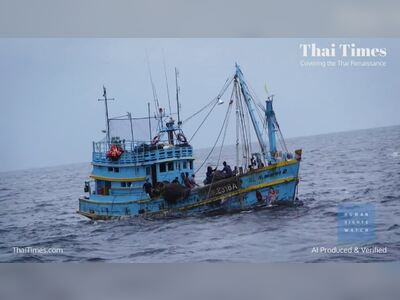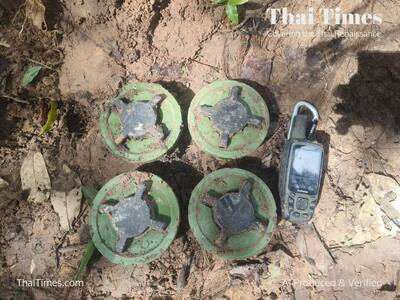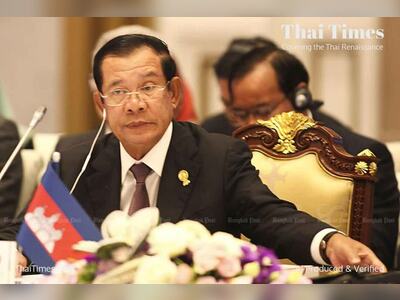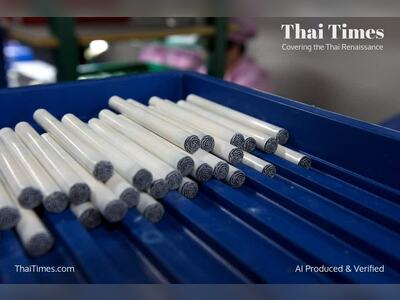Four Women Arrested in Bangkok for Allegedly Running Illegal Surrogacy Operation
Thai Authorities Crack Down on Unlicensed Surrogacy Network in Bangkok Involving Healthcare Professionals
In a significant enforcement action, the Department of Special Investigation (DSI) of Thailand has apprehended four women in connection with an illegal surrogacy network operating in Bangkok.
The arrests took place as part of an ongoing campaign to eliminate unauthorized surrogacy services across the country, raising broader ethical and regulatory questions around reproductive technologies.
The operation came to a head on a Friday in Bangkok’s Lat Phrao district, where DSI officers detained Amonya (surname withheld), a Thai national.
As reported by the department during a press briefing, Amonya is suspected to be an integral part of the surrogacy network, allegedly responsible for recruiting young women to act as surrogate mothers for payments.
This recruitment is said to serve couples, possibly both domestic and international, who are unable to conceive naturally.
The DSI’s Human Trafficking Division was further led to a hospital in Bang Kapi district, where three additional arrests were made last week.
Those detained include a doctor and two nurses accused of conducting surrogacy operations without the required permits.
According to officials, these medical professionals illegally transferred human embryos into surrogate women for monetary compensation, thus violating Thai law.
Authorities allege that these medical practitioners collaborated with Amonya, who allegedly supplied them with candidates for surrogacy.
The network reportedly operated in contravention of Thailand's strict regulations surrounding assisted reproductive technology and surrogacy services.
Critics argue that illegal surrogacy rings exploit legal loopholes and cause significant risks to those involved, not only undermining ethical medical practices but also potentially endangering the health and rights of surrogate mothers.
Thailand, a popular destination for fertility tourism in the past, has endeavored to tighten surrogacy laws, mandating that services involve only Thai couples and be strictly non-commercial.
The four women now face charges under Thailand’s laws governing assisted reproductive technology and the provision of surrogacy services without proper authorization.
As the investigation unfolds, it is expected to ignite further dialogue on the global stage regarding the governance and ethical application of assisted reproductive technologies.
The arrests took place as part of an ongoing campaign to eliminate unauthorized surrogacy services across the country, raising broader ethical and regulatory questions around reproductive technologies.
The operation came to a head on a Friday in Bangkok’s Lat Phrao district, where DSI officers detained Amonya (surname withheld), a Thai national.
As reported by the department during a press briefing, Amonya is suspected to be an integral part of the surrogacy network, allegedly responsible for recruiting young women to act as surrogate mothers for payments.
This recruitment is said to serve couples, possibly both domestic and international, who are unable to conceive naturally.
The DSI’s Human Trafficking Division was further led to a hospital in Bang Kapi district, where three additional arrests were made last week.
Those detained include a doctor and two nurses accused of conducting surrogacy operations without the required permits.
According to officials, these medical professionals illegally transferred human embryos into surrogate women for monetary compensation, thus violating Thai law.
Authorities allege that these medical practitioners collaborated with Amonya, who allegedly supplied them with candidates for surrogacy.
The network reportedly operated in contravention of Thailand's strict regulations surrounding assisted reproductive technology and surrogacy services.
Critics argue that illegal surrogacy rings exploit legal loopholes and cause significant risks to those involved, not only undermining ethical medical practices but also potentially endangering the health and rights of surrogate mothers.
Thailand, a popular destination for fertility tourism in the past, has endeavored to tighten surrogacy laws, mandating that services involve only Thai couples and be strictly non-commercial.
The four women now face charges under Thailand’s laws governing assisted reproductive technology and the provision of surrogacy services without proper authorization.
As the investigation unfolds, it is expected to ignite further dialogue on the global stage regarding the governance and ethical application of assisted reproductive technologies.











